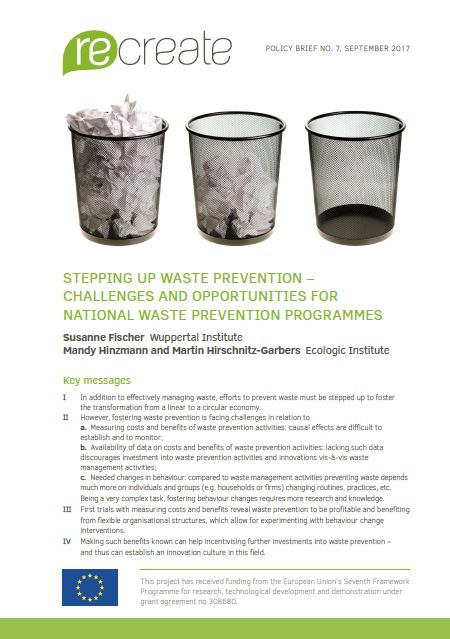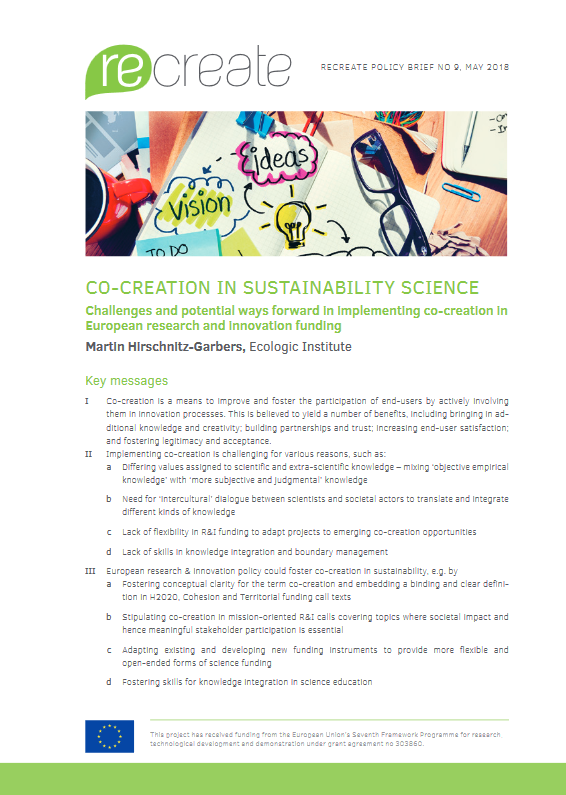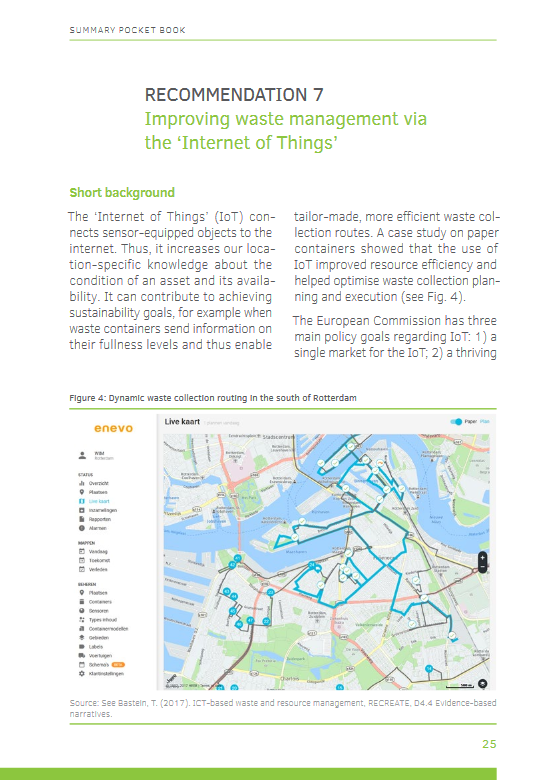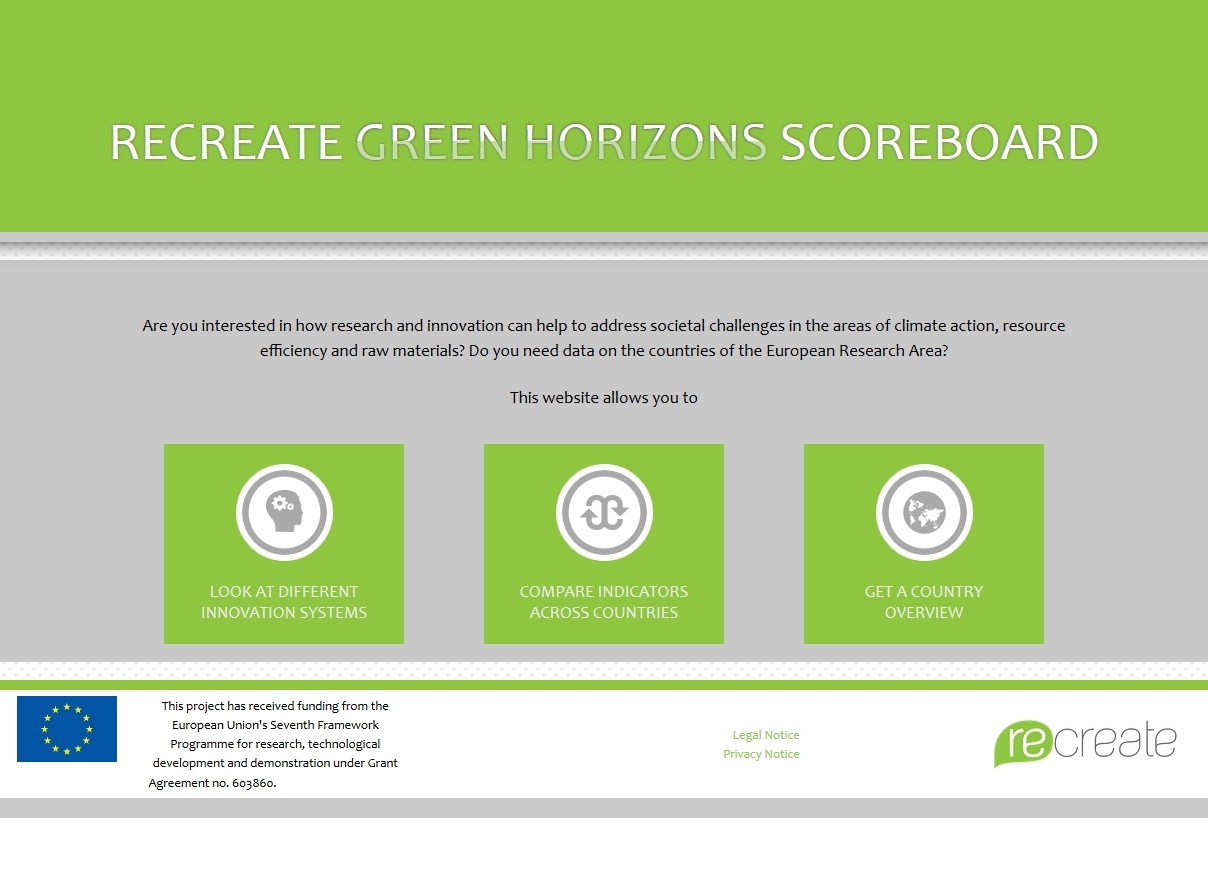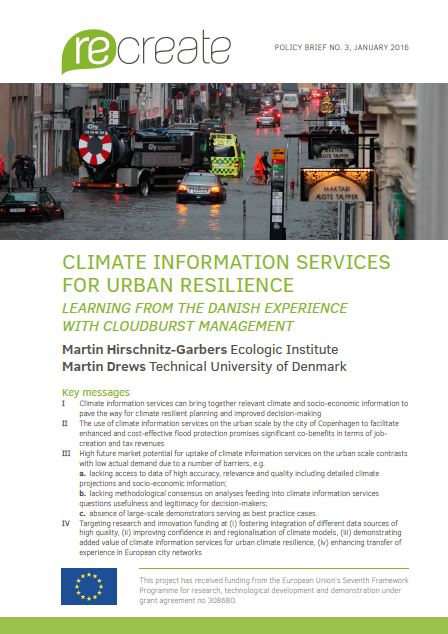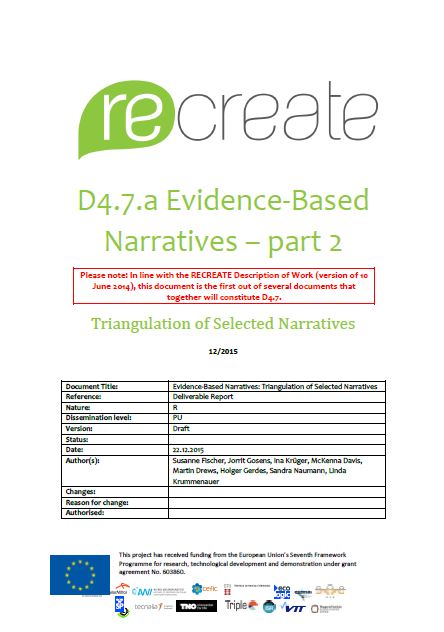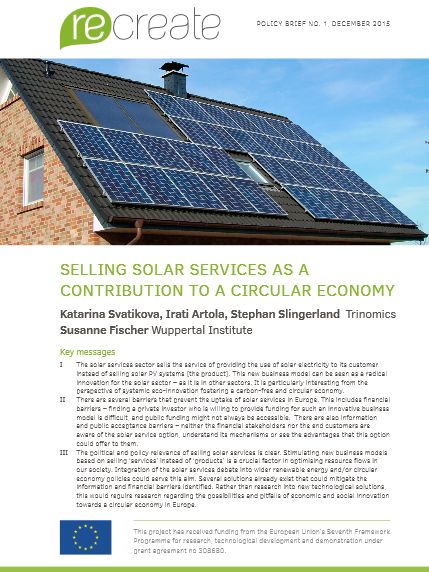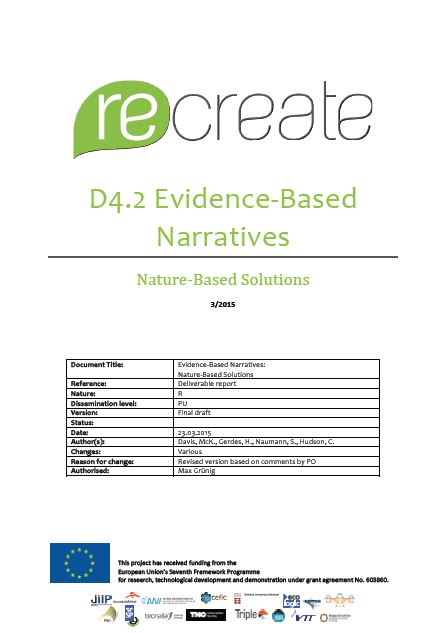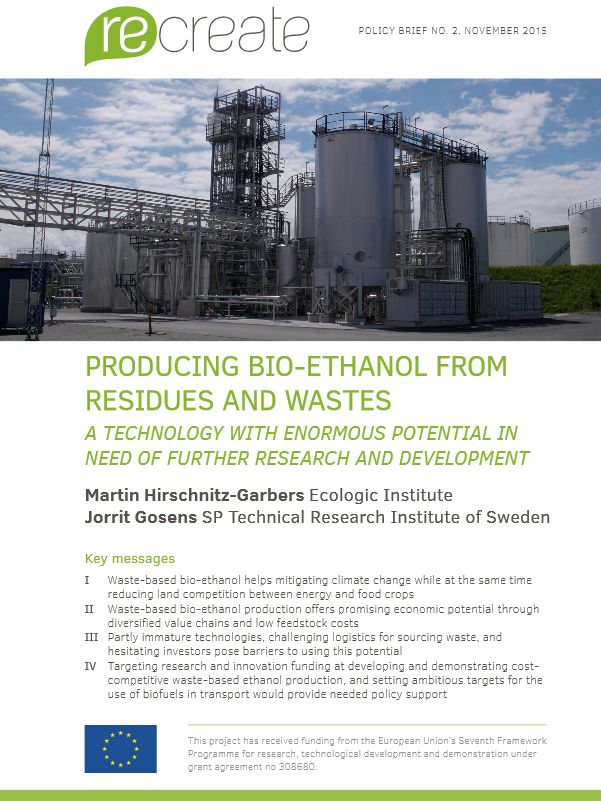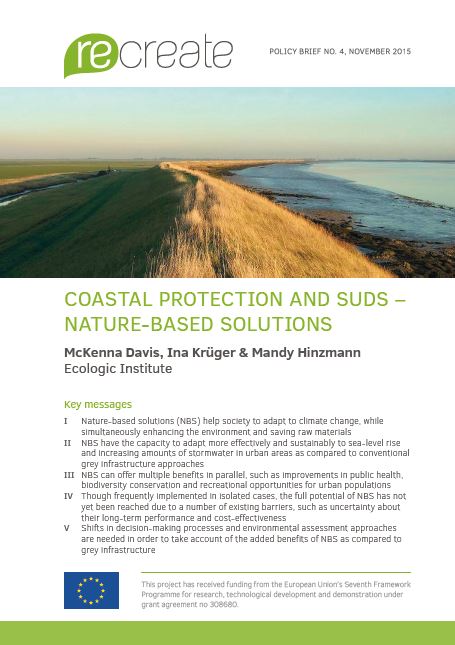Stepping up Waste Prevention
Challenges and Opportunities for National Waste Prevention Programmes
- Publication
- Citation
Fischer, Susanne; Mandy Hinzmann and Martin Hirschnitz-Garbers (2017). Stepping up Waste Prevention – Challenges and Opportunities for National Waste Prevention Programmes. RECREATE Project Policy Brief No. 7.
Ecologic Institute co-authored the RECREATE policy brief no. 7 on challenges and opportunities for national waste prevention programs. The authors state that the political framework needs to be more enabling and with further support for research and development targeted at measuring waste prevention and behavior change to unlock the potential of waste prevention. The RECREATE policy brief is available for download.
Key messages of the policy brief are:
- In addition to effectively managing waste, efforts to prevent waste must be stepped up to fosterthe transformation from a linear to a circular economy.
- However, fostering waste prevention is facing challenges in relation to
- a. Measuring costs and benefits of waste prevention activities: causal effects are difficult to establish and to monitor;
- b. Availability of data on costs and benefits of waste prevention activities: lacking such data discourages investment into waste prevention activities and innovations vis-à-vis waste management activities;
- c. Needed changes in behaviour: compared to waste management activities preventing waste depends much more on individuals and groups (e.g. households or firms) changing routines, practices, etc. Being a very complex task, fostering behaviour changes requires more research and knowledge.
- First trials with measuring costs and benefits reveal waste prevention to be profitable and benefiting from flexible organisational structures, which allow for experimenting with behaviour change interventions.
- Making such benefits known can help incentivising further investments into waste prevention – and thus can establish an innovation culture in this field.
